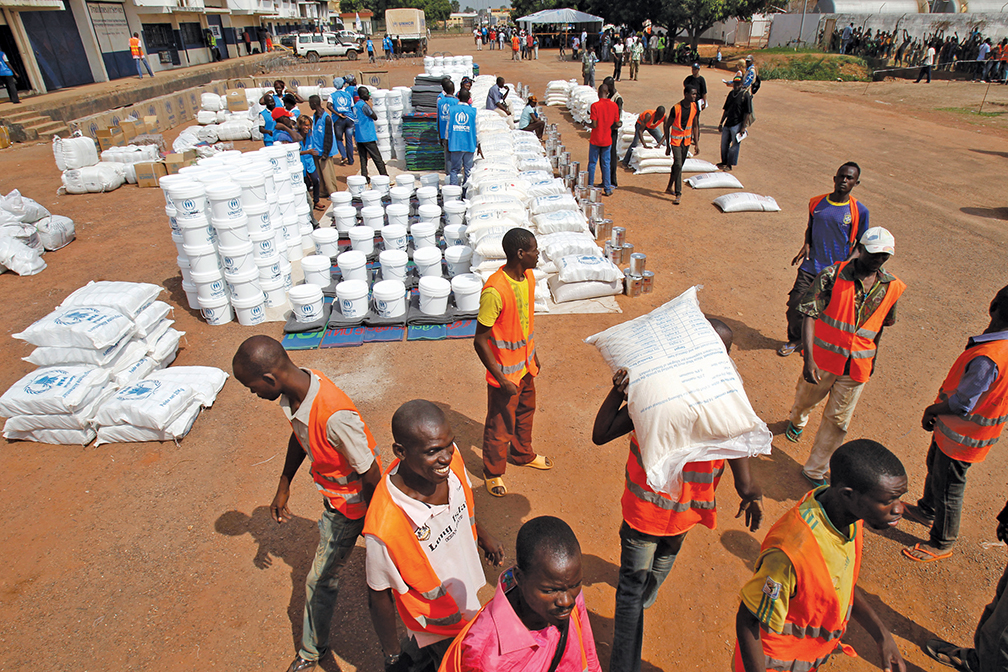![Abdoulaye Mar Dieye, a Senegalese national, is director of the Regional Bureau for Africa of the United Nations Development Programme. This is an edited version of an editorial he wrote in January 2014 for Inter Press Service News Agency. [Dylan Lowthian/UNDP]](https://adf-magazine.com/wp-content/uploads/2014/09/Abdoulaye-Mar-Dieye-300x383.jpg)
a Senegalese national, is director of the Regional Bureau for Africa of the United Nations Development Programme. This is an edited version of an editorial he wrote in January 2014 for Inter Press Service News Agency. [Dylan Lowthian/UNDP]
The sectarian violence in the Central African Republic has uprooted nearly 1 million people, and it is estimated that 2.2 million, about half the population, need humanitarian aid.
Drug supplies to clinics and hospitals have been disrupted, and public infrastructure such as schools and government buildings has been destroyed. Now, a major food crisis is looming.
While fulfilling immediate humanitarian needs is essential, the international community needs to help address the development gaps that led to the crisis in the first place. If it fails to do so, another crisis could soon happen again.
As such, humanitarian action needs to be part of a wider effort aimed at putting the country back on a more robust development path.
The current crisis in the Central African Republic is the result of long-term state failure, chronic poverty and lawlessness, coupled with decades of underinvestment in social services and economic development.
About 63 percent of the population in the country lives below the poverty line, while long-standing inequalities and competition for power and resources have driven successive conflicts, the latest fueled by religious identity.
Because various administrations have been unable to implement the rule of law, women, children and other vulnerable groups are at increased risk of violence. By the same token, because people have not been included in local development planning, marginalized and excluded groups feel that violence is the only way.
When the violence subsides, attention must stay focused on measures needed to rebuild essential infrastructure such as water reservoirs, sewers, bridges and local clinics.
Such initiatives can help restore trust and confidence among local communities across ethnic and religious divides, while involving them in the rehabilitation of local administrations.
Addressing human rights and gender-based violence through dialogue and local reconciliation, as well as ensuring disputes are mediated and victims are supported through legal aid and physical protection, can go a long way toward preventing conflict.
In the medium term, because weak governance compounded by the current power vacuum is at the core of the problem, there will need to be considerable investments in rebuilding the capacity of the state to deliver basic services to the population.
This includes creating a functioning judiciary and security corps, including police and gendarmerie units that are able to pursue criminals and apply the penalties.
Having worked with donors, national actors and international partners to create a road map for the transition of the Central African Republic, the United Nations Development Programme will support the country’s stabilization through the phased implementation of community security, livelihoods, social cohesion and reconciliation initiatives.

